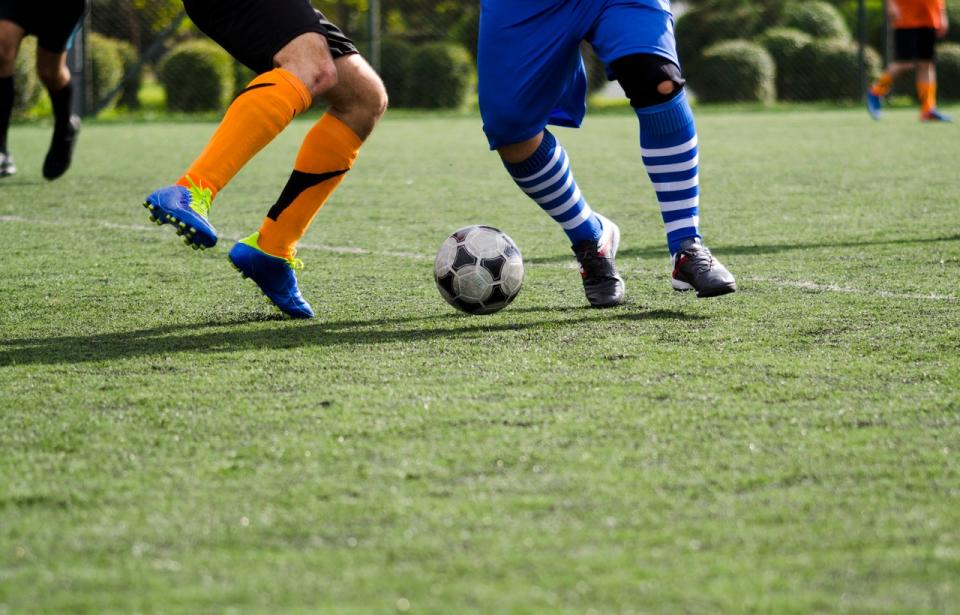Coronavirus: 300 self-isolating after outbreak linked to charity football match

A Sunday league football team has apologised after an outbreak of coronavirus at a charity match led to 300 people having to self-isolate.
Burnside Working Men’s Club FC, in County Durham, organised the game on Sunday 30 August to raise money for the charity Cancer Lads.
But following the match, 28 people who attended have now tested positive for Covid-19, leading to local public health authorities ordering everyone else present to self-isolate for 14 days.
In a statement posted on Facebook, the club admitted they did not impose the proper safety protocols for the game.
“It is with deep regret and sadness that our charity football match has caused a significant rise in positive Covid-19 cases and tests in the DH4/DH5 area,” the statement said.
“I will admit the precautions set in place were not strict enough. Going forward this will change to ensure any matches played, home or away, by the Burnside WMC will be played in the safest possible way, to make sure something like this never happens again.”
According to the Sunderland Echo, the charity match raised £540 for the cancer charity after a bucket was passed around.
Gillian Gibson, Sunderland’s director of public health, said: "It’s really important that everyone acts responsibly and follows the public health guidance when outside of the home if we are to keep our community safe.”
The director of public health for Durham, Amanda Healy, added: “Contact tracing is being carried out with anyone deemed to be a close contact of someone who has tested positive, however we are also asking anyone who was at the charity event on Sunday 30 August to immediately self-isolate up until midnight on the 13, unless they're contacted individually by NHS Test and Trace with further advice.”
Football matches have often been linked with the spread of coronavirus, and a new study by sports economists at the University of Reading claims areas which saw professional matches, even those played in mostly empty stadiums, before the start of lockdown ended up having higher numbers of Covid-19 cases and deaths.
Researchers compared the prevalence of coronavirus after matches in the top eight divisions of English football in the weeks leading up to the suspension of football in March and concluded there was an increase of on average six extra cases and two additional deaths in the areas where games were played.
There were similar increases in the regions where the away team had travelled from and the effect was still observed even when matches had low attendances.
James Reade, the lead author of the study, said it suggested even allowing in 20 per cent of fans, as has been suggested by Premier League clubs, could risk a resurgence of Covid-19. Fans crowding into public transport to travel to and from games, as well as congregating in queues, toilets and bar areas inside stadiums, all created “effective routes for airborne viruses to spread,” Prof Reade said.
However, other academics said the claims of the study were overblown. Michael Head, a senior research fellow in global health at the University of Southampton, said: “One of the most basic rules of epidemiology is ‘correlation does not equal causation’, but that is essentially what we are seeing here.
“This paper does not offer anything other than a correlation between football matches taking place in March and an increase in cases in April. They have not actually linked cases or outbreaks to football matches and there is no mention of contact tracing or outbreaks that have been obviously linked back to football attendance.”
His criticism was echoed by Mike Tildesley, an associate professor at the University of Warwick who studies mathematically modelling in the control of the spread of infectious diseases.
Not all factors which could have caused the spikes in coronavirus cases and deaths had been controlled for in the study, he warned.
“Correlation does not mean causation and with certain data sets and statistics you can see correlations between almost everything. I do not think this study provides good evidence that professional football matches contributed to higher Covid-19 cases and deaths in the surrounding areas.”
Read more

 Yahoo News
Yahoo News 